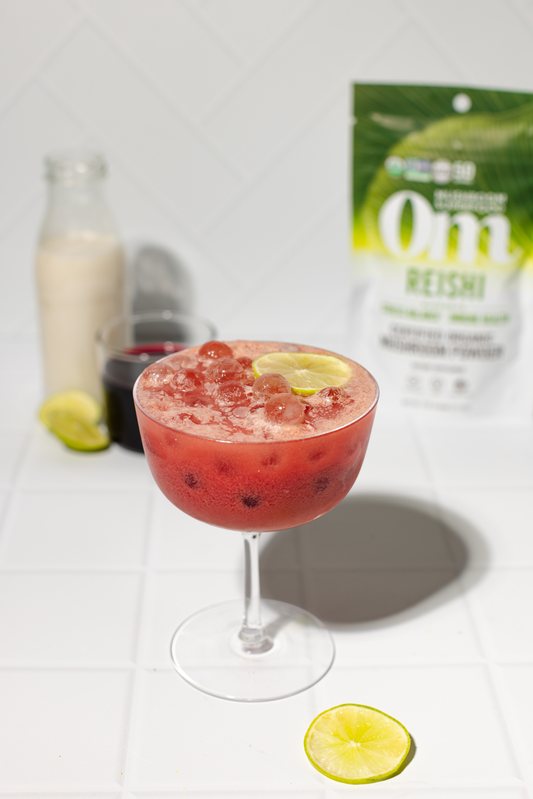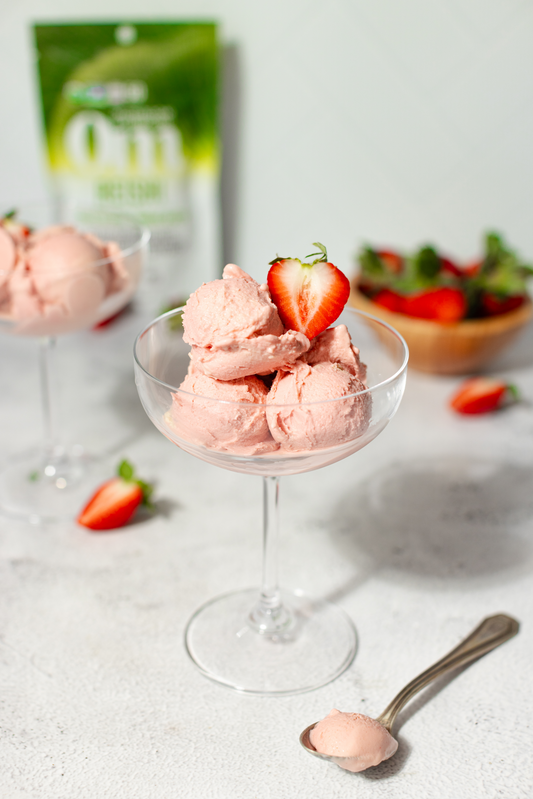DISCLAIMER: Om products are not psychedelic.
Depending on how familiar you are with today’s natural health trends — or how much you listen to Jefferson Airplane — you may have heard about magical mushrooms making a trendy comeback in popular culture. Magic mushrooms, or, as an article in the New York Times describes them — “the favored resting stool of gnomes” — are famously known for quite a few of their psychedelic properties. This class of mushrooms, though, is far from the only one that offers benefits for health.
Magic mushrooms are just one class of mushrooms with psychedelic properties, but that doesn't mean that other mushrooms are not magical in their own way. Here, let’s take a look at both psychedelic and non-psychedelic mushrooms and their effects.
History of Magic Mushrooms
The use of magic mushrooms (Psilocybin) dates back to the ancient Aztecs over 6,000 years ago, but they were first brought into the public eye in Europe by Valentina Pavlovna Wasson and Robert Wasson. The couple was traveling to Mexico on a yearly research expedition to explore indigenous populations and discovered the mushroom being used in sacred rituals. It was scientist Albert Hoffman, though, who identified its particular psychoactive property: the presence of psilocybin.
What Are Magic Mushrooms?
Psilocybin is a naturally occurring psychedelic compound that’s known for “increased intensity of emotional experiences, increased introspection, and altered psychological functioning in the form of ‘hypnagogic experiences’ — a transitory state between wakefulness and sleep.” Or, in simpler terms, people often experience feelings of strong emotion, delight, and a sense of openness and peace. Magic mushrooms will also cause visionary illusions, such as changes in light, shapes and sound.
Effects of Magic Mushrooms
While still federally illegal (although two cities in the U.S. have decriminalized the fungi) magic mushrooms have been found to potentially help with anxiety and depression. Healthline reports that early studies have shown magic mushrooms with the potential to support short, as well as long-term relief from depression. One of the researchers behind the study explained it best:
“The effect has been described as psilocybin shaking the brain up like a snow globe, or rebooting the brain, providing new connections and deactivating connections that might have caused depression.”
Indeed, between increased clinical trials approved by the FDA as a breakthrough therapy and steps towards further decriminalization, perhaps magic mushrooms might be making their way to medicinal use. Today, though, let’s focus on the magic of mushrooms that’s a little bit different and full of unique benefits — and also completely legal.
Other Types of “Magic” Mushrooms
Though culturally Psilocybin has been coined the “magic mushroom,” there are a host of functional mushroom species that feature an impressive — and, in their own right, awe-inspiring — array of naturally occurring and bioactive compounds, such as beta glucans and antioxidants that can help fight the free radicals that cause rapid aging. Here are some functional mushrooms:
- Lion’s mane (“smart mushroom”): chock-full of natural nutrients such as ericinones and hericenones that support cognitive and neurological health
- Reishi (“mushroom of immortality”): contains powerful, natural beta glucans that support immune system functionality, as well as adaptogenic properties
These superfood mushrooms have been used for thousands of years and, with the advent of modern cultivation techniques and a corpus of scientific research, are available in a variety of forms, including capsules and powders. While they can be added to drinks or taken individually, they are also easy to cook with — adding a variety of nutrients and pleasant, mellow flavors to any dish you want to whip up.
In short, non-magical mushrooms have many impressive natural health properties, including the ability to help your immune system and to help you manage stress, and there is no doubt that these benefits, while not psychedelic, are pretty darn magical in their own unique ways!
References:
- https://www.nytimes.com/2007/06/03/books/review/Teresi-t.html
- https://thethirdwave.co/psychedelics/shrooms/
- https://www.healthline.com/health-news/fda-looking-at-magic-mushroom-ingredient-to-treat-depression
- https://greatist.com/live/adaptogens-and-medicinal-mushrooms#2













